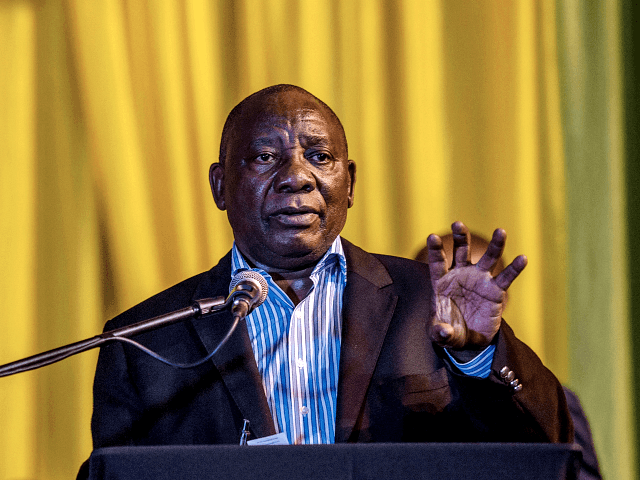South African news sources reported Sunday that the government had begun taking farmland without compensation with the attempted expropriation of two game farms in Limpopo, the country’s northernmost province, home to Kruger National Park.
The City Press reported that the government had “begun unilaterally expropriating farms against which land claims have been lodged and where price negotiations with owners have stalled.”
The South African Constitution, and existing law, allow the government to expropriate land, possibly without compensation, though in most cases the owners and the government have settled on a price after the negotiations were taken to court.
However, in the latest cases, the government acted before the owners had been given a chance to present their case in court.
The story is fueling concerns that the South African government may be acting preemptively to seize primarily white-owned land for redistribution to black owners.
Newly-installed President Cyril Ramaphosa, whom the South African business sector hoped would be a voice for reform, backed radicals’ effort to amend the South African Constitution to speed up expropriations earlier this year.
White farmers allege that there is already a list of over 100 farms that the government will target for expropriation. (However, others say the list is fake.)
Critics — and investors — fear a repeat of Zimbabwe’s failed experiment in land reform, where the government of then-President Robert Mugabe seized white-owned farms after losing a constitutional referendum to expand presidential powers in 2000.
White farmers were killed or chased out of the economy; the country’s agricultural sector collapsed; millions of people went hungry; and the government brutally repressed the political opposition in its attempt to stop the nation’s self-destruction.
South African leaders have denied that they will repeat Zimbabwe’s mistakes, but calls from the radical left for more aggressive land reform have grown louder.
Joel B. Pollak is Senior Editor-at-Large at Breitbart News. He is a winner of the 2018 Robert Novak Journalism Alumni Fellowship. He is also the co-author of How Trump Won: The Inside Story of a Revolution, which is available from Regnery. Follow him on Twitter at @joelpollak.

COMMENTS
Please let us know if you're having issues with commenting.